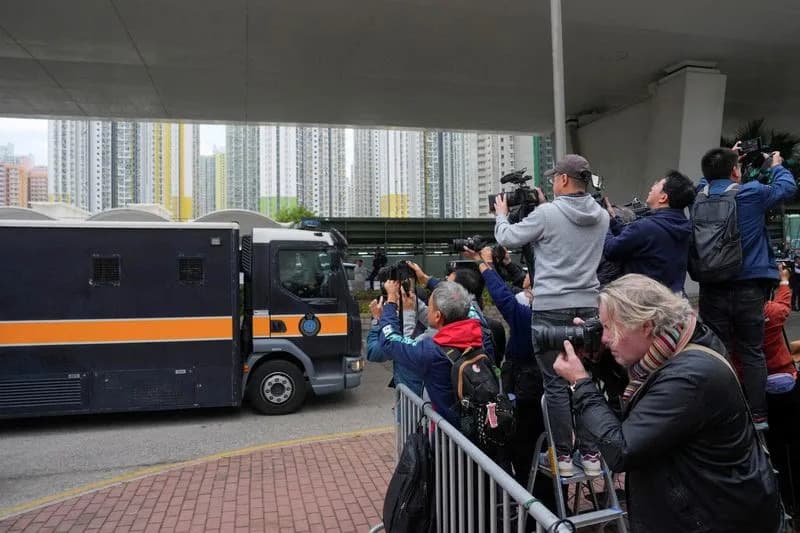The second Hong Kong Laureate Forum convened Shaw Prize winners and about 200 early-career researchers as part of Hong Kong’s bid to become a global science and technology hub. Chief Secretary Eric Chan outlined a strategy focused on talent, industry and technology to boost innovation and national science progress. The forum featured laureates including Wolfgang Baumeister (cryo-ET), Kenji Fukaya (symplectic geometry) and joint astronomy winners George Efstathiou and John Richard Bond. The government also announced a HK$3 billion research support scheme and pledged help for eight public universities to recruit top scientists.
Hong Kong Laureate Forum Opens as City Courts Global Science Talent with Shaw Prize Winners

Hong Kong Laureate Forum opens as city seeks to attract global science talent
The second Hong Kong Laureate Forum opened on Wednesday, bringing together recent Shaw Prize winners and about 200 early-career researchers as part of a concerted effort to position the city as a global centre for science and technology talent.
Chief Secretary Eric Chan Kwok-ki said the government aims to build an advanced innovation and technology ecosystem "based on promoting technology through talent, advancing industry with technology and attracting skilled people through industry development." He added the objective is to expand the talent pool, strengthen innovation and support the country’s broader science and technology progress.
Launched in 2023 and supported by the Lee Shau Kee Foundation, the forum fosters direct exchanges between Shaw laureates and early-career scientists through seminars, dialogues and hands-on workshops designed to inspire collaboration and mentorship.
Featured laureates and their work
Wolfgang Baumeister (Germany) was honoured with the 2025 Shaw Prize in life sciences and medicine for developing cryo-electron tomography (cryo-ET), an advanced imaging technique that reveals how viruses and molecular machines operate inside cells and helps guide therapeutic research.
Kenji Fukaya (Japan) received recognition for foundational work on the Fukaya category, a key concept in symplectic geometry that advances our understanding of shapes, spaces and dynamical motion in mathematics and theoretical physics.
The Shaw Prize in astronomy was shared by George Efstathiou (UK) for research on fluctuations in the cosmic microwave background, and John Richard Bond (Canada) for contributions that helped refine measurements of the early universe’s age, geometry and composition.
The event listing also names Richard Geinzel as a speaker and describes him as a 2008 Shaw laureate who won the 2020 Nobel Prize in Physics. This appears inconsistent with public records; it may be a reporting error and could refer to Reinhard Genzel (a 2020 Nobel laureate). This point should be verified and corrected by the publisher.
Government support and research funding
Hong Kong authorities are intensifying efforts to transform the city into an international science and technology centre. In September the government announced a HK$3 billion (US$386 million) Frontier Technology Research Support Scheme to advance fundamental research and to support the city’s digital-economy development.
Chan said the city will assist its eight publicly funded universities in recruiting top scientists and provide the facilities required for breakthrough research, signaling sustained investment in talent attraction and infrastructure.
Originally reported by the South China Morning Post. For accuracy, the publisher should verify the reported name and Nobel-prize attribution referenced above.
Help us improve.




























